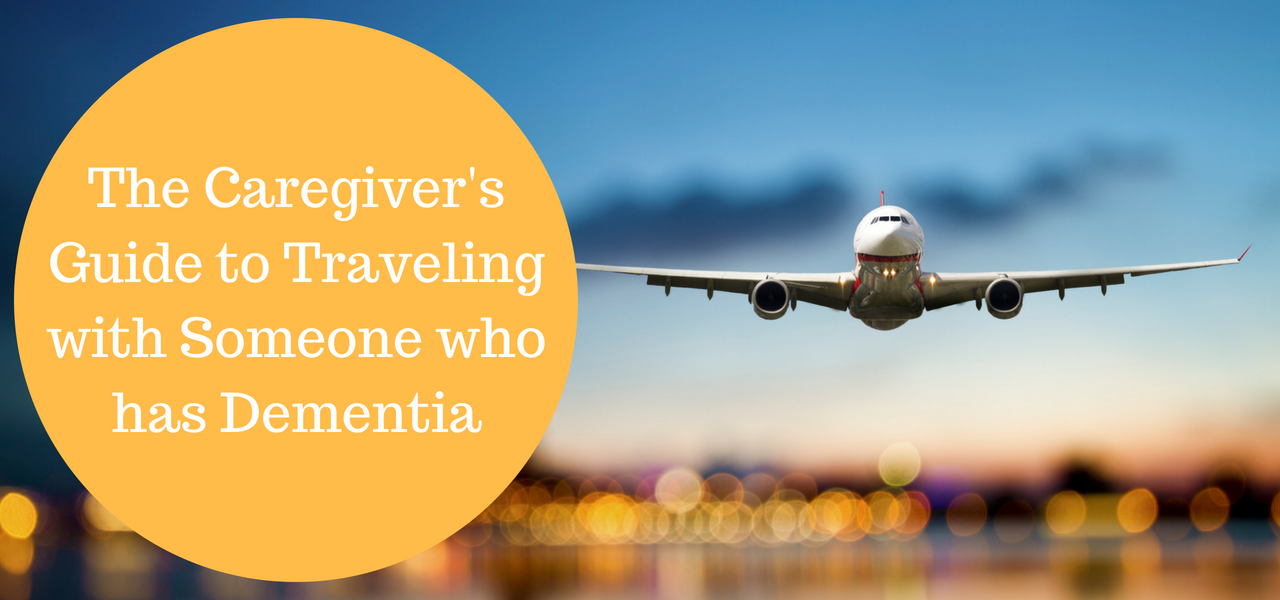
There’s no doubt that an Alzheimer’s or dementia diagnosis is life-altering. Things have to change for everyday life to continue and more support is required as the disease progresses. But, just because life changes doesn’t mean life stops. Even as dementia progresses in your loved one, it may become necessary to travel. From family reunions to weddings and even for medical appointments, travel can be a necessity for someone with dementia.
With a little preparation and realistic expectations, people with dementia can travel safely. These 10 tips can help caregivers prepare for a trip for their loved one with dementia.
10 Tips for Traveling with Someone Who Has Dementia
1. Take the most direct route
This is not the time to take the scenic route or even the cheapest route with more layovers and connections. When making travel plans, aim for the most direct route, limiting layovers – especially ones with tight connections.
2. Consider your loved ones schedule when creating travel plans
If your loved one does better in the mornings or displays symptoms of Sundowner’s Syndrome and anxiety in the evening, plan your travel accordingly. Choose the times that are the best for your loved one and improve your chances of a successful travel day.
Experience Leisure Care Senior Living
3. Contact TSA to understand security expectations for people with dementia
Calling the Transportation Security Administration in advance of your flight can help you and your loved one understand what will be expected while going through security. They may be able to make special accommodations for your loved one if they know you will be coming through in advance.
4. Limit travel time to 4 hours or less
If you must travel for longer than 4 hours, consider having at least two caregivers. Travel can be stressful and a good amount of patience is required when traveling with someone who has dementia. It’s a good idea to have a backup for long travel days.
5. Have an emergency bag readily available
Even if you have to check baggage, keep a bag with you that has important documents, legal papers, contact information, medications, travel plans, extra clothing, and doctors’ names and contact information. Having all the important information you need in one place can save crucial time in an emergency situation.
6. Give your loved one an identification bracelet
Plan on staying with your loved one at all times during travel – even during restroom breaks. To be safe, be sure your loved one has an identification bracelet with your contact information so that if you do become separated, or if your loved one is prone to wander, you can be reunited easier.
7. Ensure your loved one has a quiet place
While it may be impossible to give your loved one a quiet space on an airplane, try to give him or her their own space upon arrival. Consider staying at a hotel, instead of with family or friends so that your loved one can escape noise and potential confusion. If that’s not possible, designate a space in your accommodations that belong to the person with dementia and is available to him or her when needed.
8. Give yourself ample time
This may go without saying but do not cut your departure time close at all. It’s better to be sitting at an airport, waiting for a plane, than introducing a stressful situation to something that can already be stressful. Allow plenty of time for security, checking baggage, and traffic.
9. Hire additional help or care
If traveling with someone with dementia seems overwhelming, consider hiring additional help or care. There are medical transport services and caregivers who can travel with you and your loved one, giving you peace of mind and another pair of helping hands.
10. Set realistic expectations
Be realistic in your travel plans. Know your loved one’s limits. Know your own limits. Setting expectations with family and friends can help your loved one feel more comfortable and can help you find support. If travel just feels too overwhelming or unsafe, don’t hesitate to say no. Plan for another, more simple trip, closer to home, or invite others to your home for a shorter stay.
Have you traveled with someone who has dementia? Share your tips and experiences with us in the comments below. We’d love to hear your story!
Find a Leisure Care Community
Better with age, exceptional with us! Come and see how Leisure Care communities are helping seniors rediscover (and sometimes reinvent) themselves.








